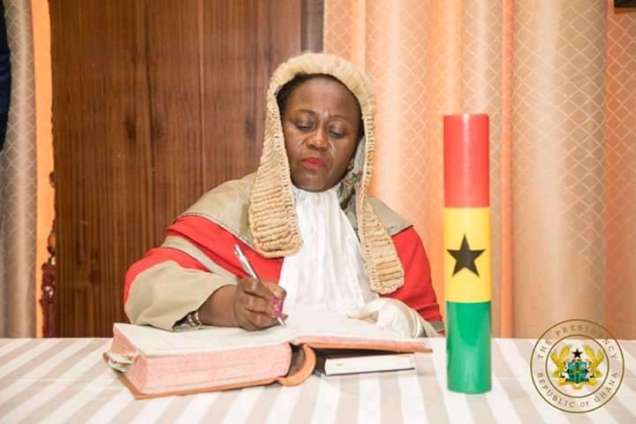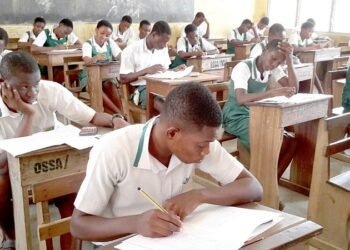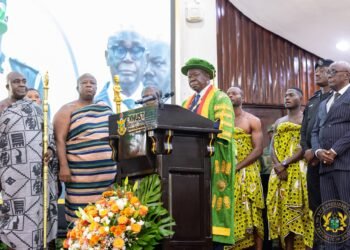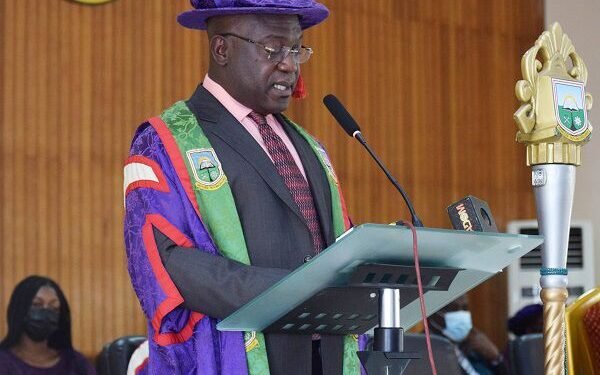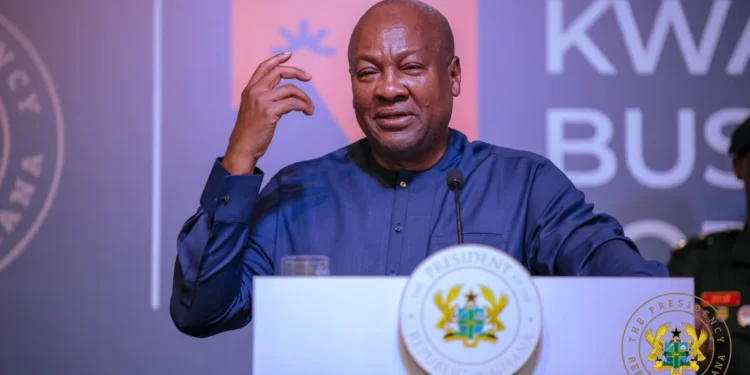Legal scholar, Prof. Stephen Kwaku Asare, has added his voice to the unfolding legal drama surrounding the suspended Chief Justice, Gertrude Araba Sackey Torkornoo, as she seeks sixteen separate reliefs from the Supreme Court in a bid to halt an investigative process into her conduct.
Prof. Asare, a Democracy and Development Fellow at CDD-Ghana, described the Chief Justice’s petition as a blend of “bold, novel, and familiar” demands.
The petition aims to disrupt the work of the committee established under Article 146 of the Constitution, which is mandated to investigate misconduct by judicial officers.
One of the most contentious reliefs is the Chief Justice’s request for a declaration that she is entitled to a public hearing and has the right to waive the constitutional requirement for in-camera proceedings.
However, Prof. Asare pointed to Article 146(8), which explicitly mandates that such proceedings “shall be held in camera.” This, he argued, is not a matter of privilege or preference, but a constitutional “command”.

Prof. Asare criticized the interpretation advanced by the Chief Justice’s legal team, stating that the attempt to redefine such a clear directive challenges the very structure of judicial oversight.
“Reliefs 4–6: Prima Facie, Sir? She says the prima facie determination was flawed, lacked reasoning, and violated her rights. GOGO humbly notes that this stage is not a judgment; it’s a threshold filter. Not every constitutional process mimics a full trial.”
Prof. Stephen Kwaku Asare
Accordingly, he suggested that demanding a comprehensive rationale at this stage misconstrues the purpose of prima facie assessments.
Suspension Powers, Chief Justice’s Allegations of Bias
In addressing Reliefs 7 through 9, Prof. Asare touched on the Chief Justice’s request to have her suspension revoked.
The suspension, she claims, is unconstitutional and undermines judicial independence.
However, Prof. Asare reminded the public that Article 146(10) provides the President the discretion to suspend a judge once a prima facie case is found. He cited past precedent with the former CHRAJ Commissioner, Ms. Lamptey, to support his argument.
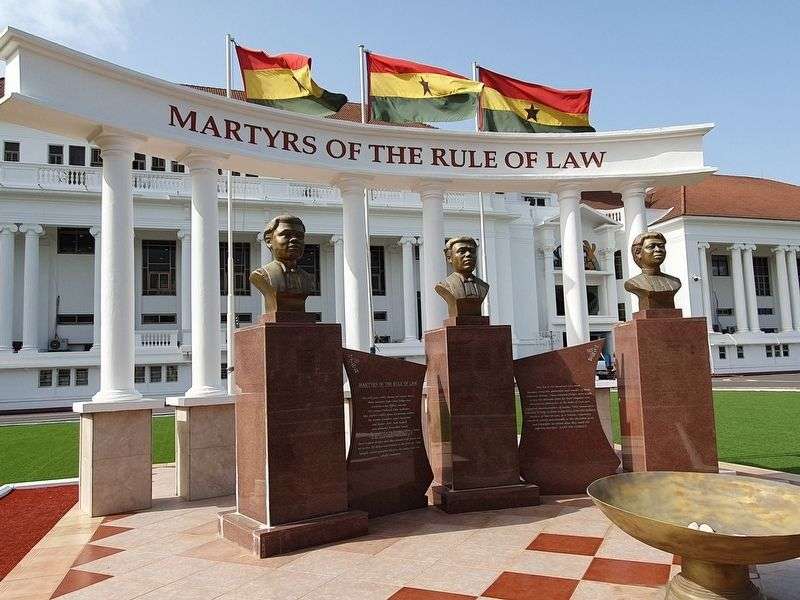
“The President is entirely within his powers to suspend her,” he insisted, adding that there is no departure from constitutional protocol in this instance.
The middle part of the petition focuses on disqualifying two members of the committee—Justices Pwamang and Adibu-Asiedu.
Reliefs 10 to 13 argue that the judges’ prior involvement in related cases renders them biased. However, Prof. Asare pushed back against these claims, noting that overlap in judicial assignments is common in Ghana’s legal system.
“That’s not bias. That’s the job. In fact, the CJ herself has been very harsh on lawyers who tried to raise potential bias by Justice Gaewu, admonishing them ‘not to go there.’”
Prof. Stephen Kwaku Asare
Moving on to Relief 14, the Chief Justice attempts to disqualify even the lay members of the committee. Prof. Asare found this to be especially troubling.
Prof. Asare questioned the basis for such disqualification, stating that no evidence of conflict or misconduct has been provided.
“Just more procedural fog,” he observed, implying that the relief amounts to another delay tactic cloaked in legal formality.
Sixteen Reliefs, One Real Goal?
Accordingly, Prof. Kwaku Asare suggested that the real crux of the petition lies in Relief 15, which seeks to terminate the committee’s work entirely.
He pointed out that similar requests have been made in the past and were dismissed by the Supreme Court.
“Third time lucky?” he quipped, casting doubt on the likelihood of a different outcome this time around.

The final request—Relief 16—asks the court to consider “anything else it may deem fit.” Prof. Asare dismissed this as a typical legal catch-all, noting the timing of the petition coincides, yet again, with scheduled committee sessions.
“Three writs. Two injunctions. Sixteen reliefs. Timing that always coincides with scheduled committee sittings. A familiar pattern?”
Prof. Stephen Kwaku Asare
Accordingly, Prof. Asare issued a caution against weaponizing constitutional provisions to obstruct legitimate investigations.
“The Constitution must not be turned into a maze for evasion. The court must protect its time. The process must be allowed to work. If this continues unchecked, GOGO fears Article 146 could go from a tool of oversight to a treadmill of obstruction, moving all the time, but going nowhere.”
Prof. Stephen Kwaku Asare
Prof. Asare ended his remarks with a decisive call for institutional integrity and national progress.
Stressing the importance of allowing due process to unfold without unnecessary interference, he urged Ghanaians to place their trust in the country’s legal and constitutional mechanisms.
He emphasized that institutions must be allowed to operate independently, evidence should be the guiding force in all proceedings, and the collective focus should be on advancing Ghana’s democratic values.
In his words, the nation must move forward by upholding the rule of law, reaffirming that the law remains the ultimate authority.
READ ALSO: “White Genocide” In South Africa Overshadow Trump-Ramaphosa Talks

